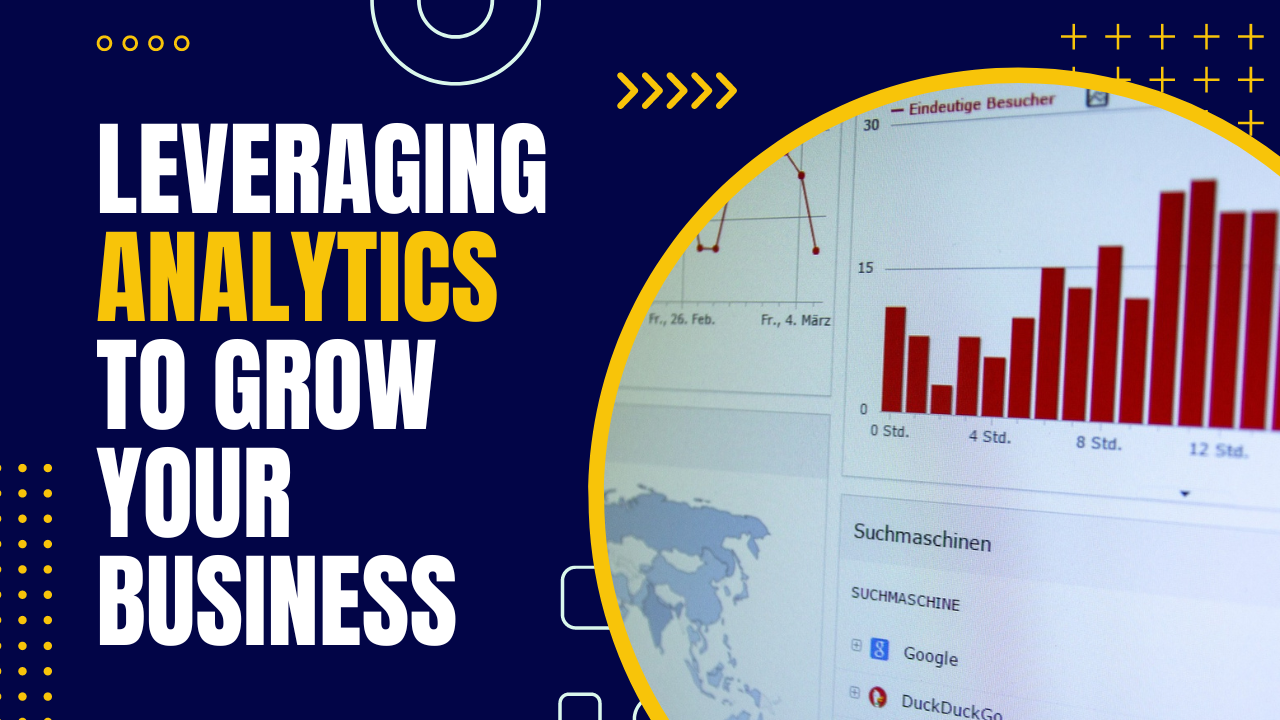
In the fast-paced world of digital business, the role of analytics cannot be overstated. For digital entrepreneurs, harnessing the power of analytics is crucial to navigate the complexities of the online marketplace. Analytics offer a wealth of insights, driving informed decision-making and fostering business growth. This article will explore how digital entrepreneurs can effectively utilize analytics to gain a competitive edge and steer their businesses toward success.
The Role of Analytics in Digital Business
Analytics play a pivotal role in the digital business landscape. They enable entrepreneurs to make data-driven decisions, which are essential in today’s competitive environment. Utilizing analytics leads to a deeper understanding of customer behaviors, preferences, and needs. This understanding is critical for optimizing marketing strategies, enhancing product development, and ultimately driving business growth.
The benefits of using analytics extend beyond mere customer insights. They empower businesses to track performance, identify trends, and make strategic adjustments in real-time. By leveraging the power of analytics, digital entrepreneurs can make informed decisions that align with their business objectives and market dynamics.
Tracking Website Traffic and User Engagement
Understanding website traffic and user engagement is fundamental for any digital business. Tools like Google Analytics provide a comprehensive view of visitor behavior, including how users interact with your site, which pages they visit, and how long they stay. These metrics offer invaluable insights into the effectiveness of your website design, content, and user experience.
Analyzing website traffic helps in identifying what attracts visitors to your site and what keeps them engaged. This information is crucial for refining your online presence and ensuring that your website effectively captures and retains the interest of your target audience. Regularly monitoring these metrics allows for continuous improvement and adaptation to user preferences and behaviors.
Understanding Customer Behavior
Analyzing customer behavior is essential for tailoring your business strategies to meet the needs and preferences of your target audience. This involves gathering data on customer purchasing habits, preferences, and feedback. Such insights enable businesses to develop products and services that resonate with their customers, thereby enhancing customer satisfaction and loyalty.
Data on customer behavior can be gathered through various means, including customer surveys, feedback forms, and purchasing data. Interpreting this data helps in creating personalized marketing campaigns, developing targeted product offerings, and improving overall customer experience.
Measuring Conversion Rates and ROI
One of the key benefits of analytics is the ability to measure conversion rates and return on investment (ROI) from digital campaigns. Tracking these metrics is essential for assessing the effectiveness of your marketing strategies. Analytics tools can provide detailed insights into which campaigns are driving conversions and generating ROI, enabling you to allocate resources more effectively.
Refining marketing strategies based on analytics leads to improved conversion rates over time. By continually analyzing and adjusting your approach based on data, you can increase the efficiency of your marketing efforts and maximize the return on your investment.
Utilizing Predictive Analytics
Predictive analytics is a forward-looking approach that uses data, statistical algorithms, and machine learning techniques to identify the likelihood of future outcomes. This form of analytics can be a game-changer for digital entrepreneurs, enabling them to anticipate market trends, customer behavior, and potential business opportunities.
Leveraging predictive analytics allows entrepreneurs to be proactive rather than reactive. By forecasting future trends and customer needs, businesses can stay ahead of the competition and make strategic decisions that align with anticipated market changes.
Making Data-Driven Decisions
Making decisions based on data rather than intuition is crucial in the digital age. Integrating analytics into your regular business decision-making processes ensures that your strategies are grounded in real-world insights. This approach minimizes guesswork and speculation, leading to more effective and successful business outcomes.
Best practices for integrating analytics into decision-making include setting clear goals, regularly reviewing data, and being open to adjusting strategies based on analytical insights. This data-driven approach ensures that your business remains agile and responsive to market changes.
Conclusion
In conclusion, leveraging analytics is essential for business growth in the digital age. From understanding customer behavior and tracking website engagement to utilizing predictive analytics, the insights gained from data are invaluable. They empower digital entrepreneurs to make informed decisions, refine strategies, and stay ahead of market trends.
The transformative power of analytics in guiding digital businesses towards success cannot be underestimated. By embracing a data-driven approach, entrepreneurs can unlock new opportunities and propel their businesses to new heights.



Leave a Reply